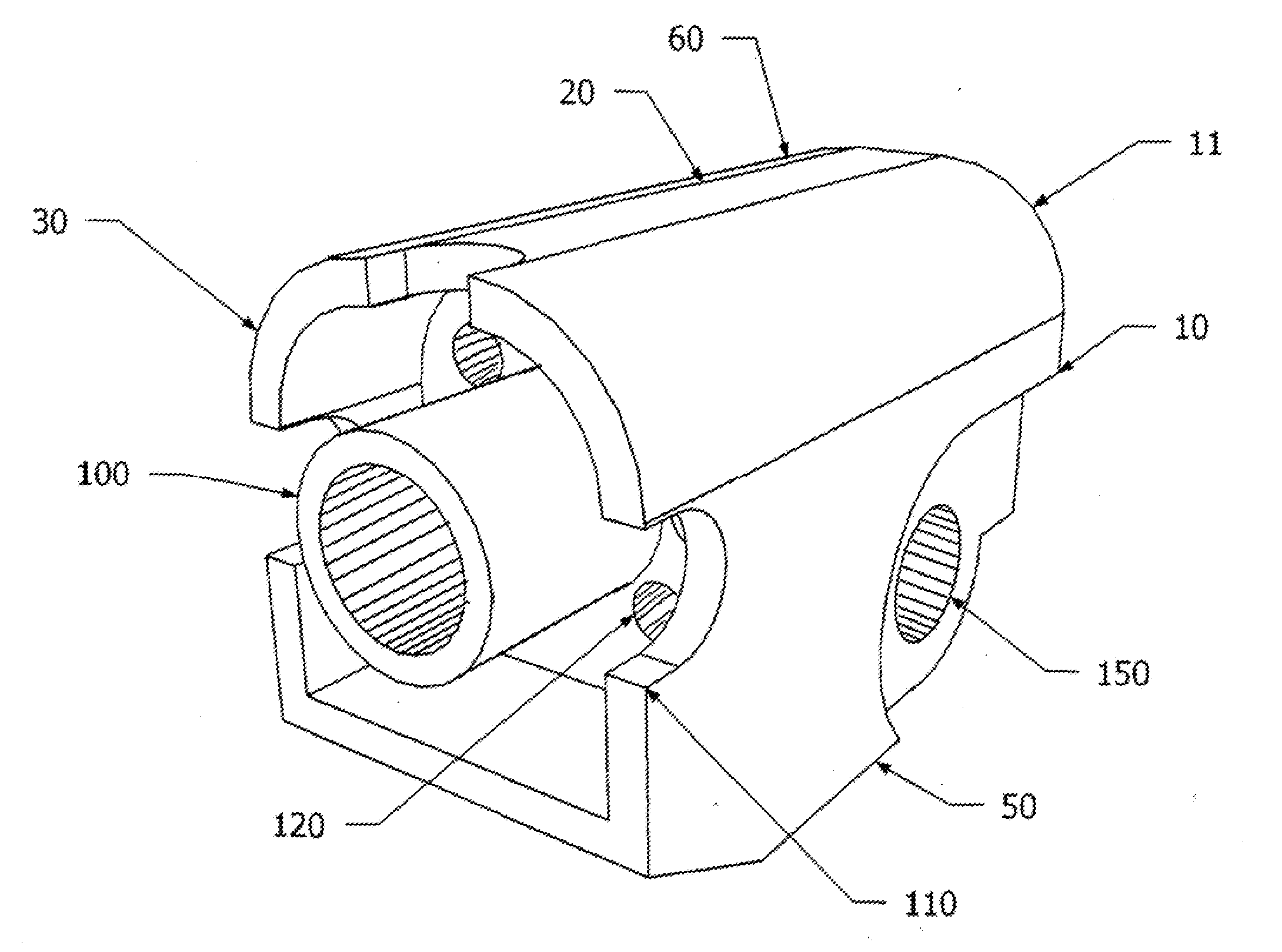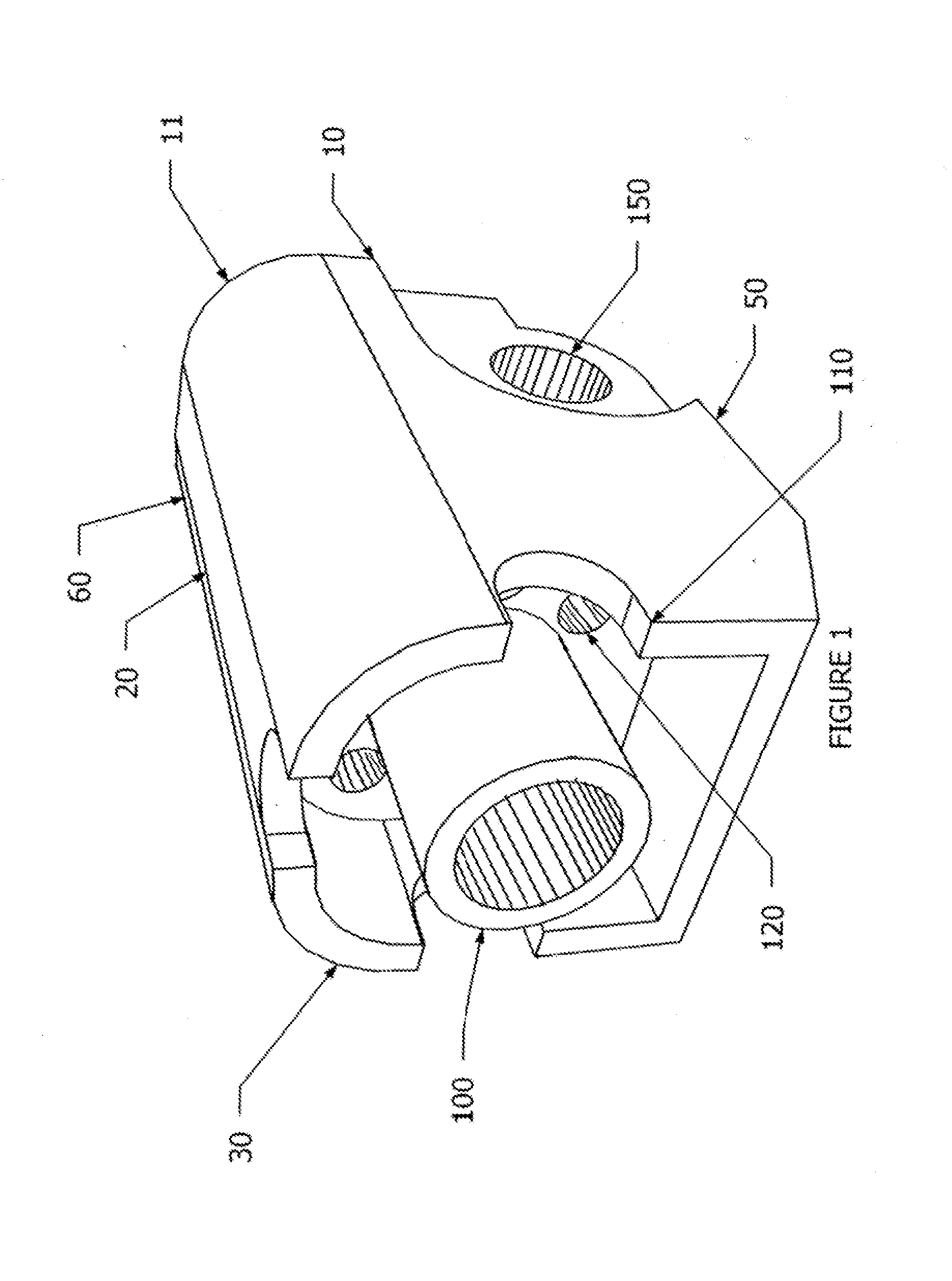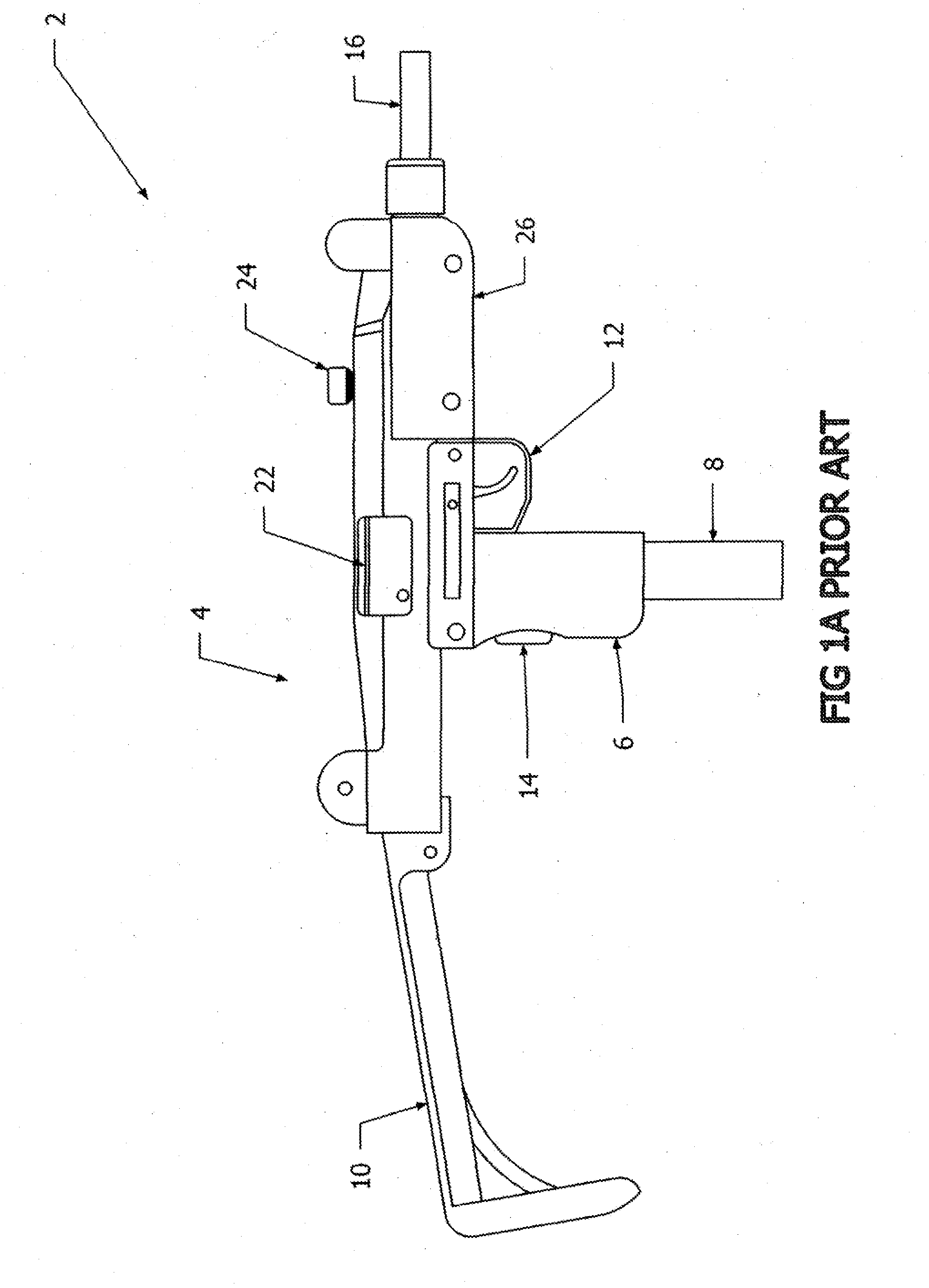Blank chamber and housing
a technology of a gun chamber and a housing, which is applied in the field of components of a firearmlike device, can solve the problems of high legal restrictions, monetary costs and moral responsibility, and the baggage of carrying with it the burden of monetary cost and moral responsibility, and the ability of people to own certain types of live ammunition to fire guns
- Summary
- Abstract
- Description
- Claims
- Application Information
AI Technical Summary
Benefits of technology
Problems solved by technology
Method used
Image
Examples
Embodiment Construction
[0058]Before delving into a description of the present invention, it is useful to review the various components of a typical firearm, to help provide context to the description of the present invention.
[0059]In FIG. 1A, a schematic drawing of a prior art weapon is shown. In particular, the weapon shown in FIG. 1A is an Uzi submachine gun that is the subject of U.S. Pat. No. 4,335,643, that issued on 22 Jun. 1982. The description of the machine gun and the manner in which it operates is incorporated herein by reference.
[0060]The machine gun 2 shown in FIG. 1A includes an elongated receiver 4, that generally contains the various springs, bolts, slides, etc., that handle the passage of a cartridge and passage from a magazine, to the receiver and then upon ejection from the gun. Although the weapon 2 shown in FIG. 1A is a “gun” capable of firing projectiles, it will be appreciated that the feature described in connection with the Uzi submachine gun 2 of FIG. 1A could be common with a bl...
PUM
 Login to View More
Login to View More Abstract
Description
Claims
Application Information
 Login to View More
Login to View More - R&D
- Intellectual Property
- Life Sciences
- Materials
- Tech Scout
- Unparalleled Data Quality
- Higher Quality Content
- 60% Fewer Hallucinations
Browse by: Latest US Patents, China's latest patents, Technical Efficacy Thesaurus, Application Domain, Technology Topic, Popular Technical Reports.
© 2025 PatSnap. All rights reserved.Legal|Privacy policy|Modern Slavery Act Transparency Statement|Sitemap|About US| Contact US: help@patsnap.com



